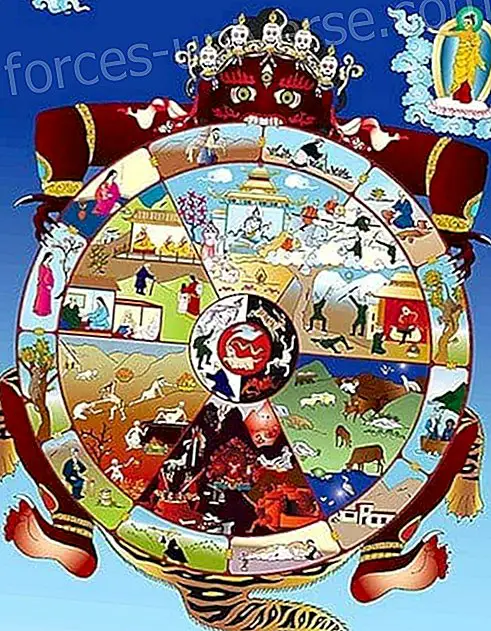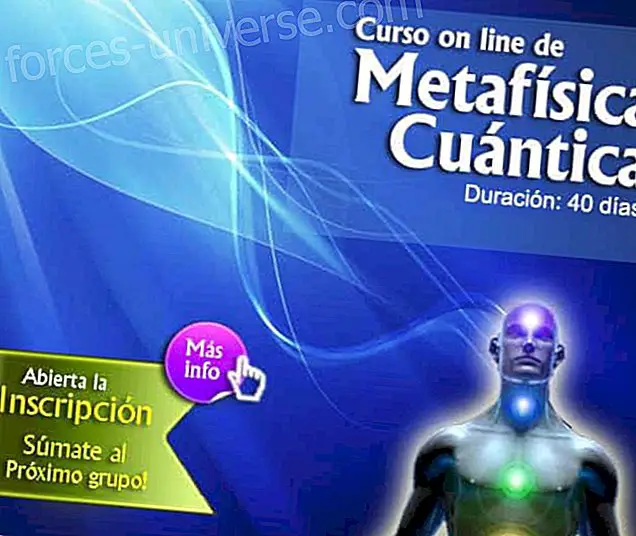
“IRRADIATION OF BALANCE TO MOTHER EARTH”
Meditation / Monthly service for the month of April 2010
FROM THE REC3 - CHRONIC ENERGY GRILLE IN 3 LEVELS
https://hermandadblanca.org/ |
World Mother Earth Day
| DAY: | Thursday, April 22, 2010 |
HOUR: | 21h, local time in each country. | |
OBJECTIVE: | Coinciding with the International Day of Mother Earth, we want to support the "Earth Charter", with which governments around the world have been working since 1987. |
STEPS TO FOLLOW IN GROUP MEDITATION / ENERGY SERVICE
1) Recite The Great Invocation of the Tibetan Master
2) Invocation of the Ascended Masters to guide us during the energy service:
Lord Maitreya
| Tibetan Master Dhwhal Khul
| Beloved Kwan Yin
|
3) Harmonization of breathing and relaxation : we breathe deeply a minimum of three times, repeating mentally SO when we inhale and HAM when we exhale.
4) Individual balance meditation for harmonization singing the OHM and GAYATRI, it is recommended to use the following audio: https://hermandadblanca.org/meditacion_equilibrio.mp3
5) Radiation of equilibrium TO MOTHER EARTH : visualize the colors and invoke the energies specified in the table below, for approximately 10 minutes.
ENERGIES | COLORS | SOUNDS | GEOMETRIC FORM |
-Force of the Mother -Healing -Compassion -Love | -GREEN -SILVER | Mantram OHM
| OCTAHEDRO
|
FOR ANY CONSULTATION CONTACT
OR VISIT THE NEXT LINK: CONTACT FORM
LETTER OF THE EARTH
World Mother Earth Day
April 22, 2010
THE WAY FORWARD
As never before in history, our common destiny urges us to seek a new beginning. Such renewal is the promise of the Earth Charter. To make it happen, we must commit to adopt and promote the values and objectives of the Charter.
The process requires a change of mentality and heart; It also requires adopting a new sense of global interdependence and universal responsibility. We must develop and apply imaginatively at the local, national, regional and global levels, the vision of a sustainable way of life. Our cultural diversity is a precious heritage and each culture will find its own way of developing these goals. We must deepen and expand the global dialogue that generated the Earth Charter because there is much to learn from all who participate in the search for truth and wisdom.
In life there are often conflicts between important values that implies having to make difficult decisions; However, we must look for ways to harmonize diversity with unity, the exercise of freedom with the common good, short-term objectives and long-term goals. Every individual, family, organization and community has a vital role to fulfill. The arts, sciences, religions, educational institutions, media, companies, non-governmental organizations and governments have been urged to provide creative leadership. The alliance between governments, civil society and companies is essential for effective governance.
In order to build a sustainable global community, the nations of the world must renew their commitment to the United Nations, they must fulfill their obligations in relation to existing international agreements, as well as support the implementation of the Earth Charter principles through of an international legally binding instrument on environment and development.
That ours is a time that is remembered for the awakening of a new reverence for life, for the firm resolve to achieve sustainability, for the acceleration in the struggle for justice and peace and for the joyful celebration of life.
What is the Earth Charter?
The Earth Charter is a declaration of fundamental ethical principles for the construction of a just, sustainable and peaceful global society in the 21st century. The Charter seeks to inspire in all peoples a new sense of global interdependence and shared responsibility for the well-being of the entire human family, the great community of life and future generations. The Charter is a vision of hope and a call to action.
The Earth Charter is especially concerned with the transition to sustainable ways of life and sustainable human development. Therefore ecological integrity is one of its main approaches. However, the Charter recognizes that ecological protection, poverty eradication, equitable economic development, respect for human rights, democracy and peace are interdependent and indivisible goals. Therefore, the document offers a new comprehensive and inclusive ethical framework to guide the transition towards a sustainable future.
The Charter is the result of a worldwide intercultural dialogue around various common goals and shared values, which took place over a decade. The Earth Charter project began as an initiative of the United Nations, but was developed and finalized as an initiative of civil society. In 2000, the document was completed and the Earth Charter Commission, an independent international entity, publicly disclosed it as a letter from the peoples.
The drafting of the Earth Charter was the most inclusive and participatory process ever undertaken around the creation of an international declaration. This process is precisely what gives it its legitimacy as a guiding ethical framework. The legitimacy of the document has been further strengthened by the support obtained by more than 4, 800 organizations, including various governmental and international organizations.
In light of this legitimacy, a growing number of international jurists recognize that the Earth Charter is acquiring a soft law document status. It is considered that such documents, such as the Universal Declaration of Human Rights, are morally binding on state governments that accept to endorse and adopt them, even if they are not legally binding. But generally, these documents establish the basis for the development of a hard law.
At a time when urgently needed important changes are generated in the way we think and live, the Earth Charter challenges us to examine our values and choose a better course. At a time when education for sustainable development has become an essential element, the Earth Charter offers a very valuable educational instrument. In circumstances in which international labor alliances are increasingly needed, the Earth Charter encourages us to find common aspects in the midst of our diversity and to adopt the global ethics shared by a growing number of people around the world. .
The Earth Charter
PREAMBLE
We are at a critical moment in the history of the Earth in which humanity must choose its future. As the world becomes increasingly interdependent and fragile, the future holds, at the same time, great risks and great promises. To move forward we must recognize that in the midst of the magnificent diversity of cultures and ways of life, we are a single human family and a single terrestrial community with a common destiny. We must unite to create a sustainable global society founded on respect for nature, universal human rights, economic justice and a culture of peace. Around this end, it is imperative that we, the peoples of the Earth, declare our responsibility towards each other, towards the great community of life and towards future generations.
THE EARTH, OUR HOME
Humanity is part of a vast evolving universe. The Earth, our home, gives life to a unique community of life. The forces of nature make existence a demanding and uncertain adventure, but the Earth has provided the essential conditions for the evolution of life. The resilience of the community of life and the well-being of humanity depend on the preservation of a healthy biosphere, which contains all its ecological systems, a rich variety of plants and animals, fertile lands, pure waters and clean air. The global environment, with its finite resources, is a common concern for all peoples. The protection of the vitality of the Earth, its diversity and beauty is a sacred duty.
THE GLOBAL SITUATION
The dominant patterns of production and consumption are causing environmental devastation, resource depletion and mass species extinction. The communities are being destroyed. The benefits of development are not shared equitably and the gap between rich and poor is widening. Injustice, poverty, ignorance and violent conflicts are manifested everywhere and are the cause of great suffering. An unprecedented increase in the human population has overloaded the ecological and social systems. The fundamentals of global security are being threatened. These trends are dangerous, but not inevitable.
THE COMING CHALLENGES
The choice is ours: to form a global society to take care of the Earth and take care of each other or risk our own destruction and that of the diversity of life. Fundamental changes are needed in our values, institutions and ways of life. We must realize that, once the basic needs have been met, human development refers primarily to being more, not having more. We possess the knowledge and technology necessary to provide for everyone and to reduce our impacts on the environment. The emergence of a global civil society is creating new opportunities to build a democratic and humanitarian world. Our environmental, economic, political, social and spiritual challenges are interrelated and together we can propose and achieve global solutions.
UNIVERSAL RESPONSIBILITY
To carry out these aspirations we must make the decision to live according to a sense of universal responsibility, identifying ourselves with the entire terrestrial community, as well as with our local communities. We are citizens of different nations and of one world at the same time, where the local and global fields are closely linked. We all share a responsibility towards the present and future well-being of the human family and the living world in its breadth. The spirit of human solidarity and affinity with all life is strengthened when we live with reverence for the mystery of being, with gratitude for the gift of life and with humility regarding the place that human beings occupy in nature .
We urgently need a shared vision of basic values, which provide an ethical foundation for the emerging world community. Therefore, together and with great hope, we affirm the following interdependent principles for a sustainable way of life, as a common foundation by which the behavior of people, organizations, companies, should be guided and valued. Transnational governments and institutions.
BEGINNING
I. RESPECT AND CARE OF THE COMMUNITY OF LIFE
1. Respect the Earth and life in all its diversity
- Recognize that all beings are interdependent and that all forms of life, whatever their purpose, have value for human beings.
- Fully trusting the inherent dignity of all human beings and the intellectual, artistic, ethical and spiritual potential of humanity.
2. Caring for the community of life with understanding, compassion and love.
- Accept that the right to own, manage and use natural resources leads to the duty to prevent environmental damage and protect the rights of people.
- Recognize that, the greater freedom, knowledge and power, the greater the corresponding responsibility for promoting the common good.
3. Build democratic societies that are fair, participatory, sustainable and peaceful
- Ensure that communities, regardless of their level, guarantee human rights and fundamental freedoms and also provide everyone with the opportunity to develop their full potential.
- Promote social and economic justice, enabling all people to reach a safe and dignified way of life, while at the same time ecologically responsible.
4. Ensure that the fruits and beauty of the Earth are preserved for present and future generations.
- Recognize that the freedom of action of each generation is conditioned by the needs of future generations.
- Transmit to future generations those values, traditions and institutions that support the long-term prosperity of both human and ecological communities on Earth.
In order to make these four general commitments, it is necessary:
II. ECOLOGICAL INTEGRITY
5. Protect and restore the integrity of the Earth's ecological systems, with special concern for biological diversity and the natural processes that sustain life.
- Adopt from all levels sustainable development plans and regulations that allow including environmental conservation and rehabilitation as an integral part of all development initiatives.
- Establish and safeguard viable reserves of nature and the biosphere, including wild lands and marine areas, so that they tend to protect Earth's life systems, maintain biodiversity and preserve our natural heritage.
- To promote the recovery of the species and ecosystems at risk.
- Control and eradicate exogenous or genetically modified organisms, which are harmful to native species and the environment; and also, prevent the introduction of such harmful organisms.
- Manage the use of renewable resources such as water, land, forest products and marine life, so that their chances of regeneration are not exceeded and the health of ecosystems is protected.
- Direct the extraction and use of non-renewable resources, such as minerals and fossil fuels, in a way that minimizes their depletion and does not cause serious environmental damage.
6. Avoid damaging as the best method of environmental protection and when knowledge is limited, proceed with caution.
- Take measures to avoid serious or irreversible environmental damage, especially when scientific knowledge in this regard is incomplete or incomplete.
- Have all the consequences of an action assumed to those who argue that the development of a certain activity will not cause any significant environmental damage and, if it occurs, proceed for those responsible to repair said damage.
- Ensure that the cumulative, long-term, indirect, long-distance and associated global consequences are taken into account when making decisions about human activities.
- Prevent pollution of the entire planet's environment and not allow the accumulation of radioactive, toxic or other hazardous substances.
- Avoid military activities that deteriorate the environment.
7. Adopt patterns of production, consumption and reproduction that safeguard the regenerative capacities of the Earth, human rights and community welfare.
- Reduce, reuse and recycle materials used in production and consumption systems and ensure that residual waste can be assimilated by ecological systems.
- Act with moderation and efficiency when using energy and try to depend more and more on renewable energy resources, such as wind and solar.
- Promote the development, adoption and equitable transfer of environmentally sound technologies.
- Internalize all of the environmental and social costs of goods and services in the sale price and enable consumers to identify products that meet the highest social and environmental qualities.
- Ensure universal access to health care that promotes reproductive health and responsible reproduction.
- Adopt ways of life that emphasize the quality of life and the sufficiency of material goods in a finite world.
8. Promote the study of ecological sustainability and promote the open exchange of knowledge acquired, as well as its extensive application.
- Support international scientific and technical cooperation on sustainability, with special attention to the needs of developing nations.
- Accept and preserve the traditional knowledge and spiritual wisdom of all cultures that contribute to environmental protection and human well-being.
- Ensure that all information of vital importance to human health and environmental protection, including genetic information, is in the public domain.
III. SOCIAL AND ECONOMIC JUSTICE
9. Eradicate poverty as an ethical, social and environmental imperative.
- Guarantee the right to drinking water, clean air, food security, uncontaminated land, housing and safe sanitation, appropriately allocating the corresponding national and international resources.
- Facilitate all human beings access to education and resources that ensure a sustainable way of life, and provide social security and support networks to those who cannot support themselves.
- Offer help to the ignored, protect the vulnerable, serve those who suffer and enable all of them to develop their abilities and achieve their aspirations.
10. Ensure that economic activities and institutions, at all levels, promote human development in an equitable and sustainable manner.
- Promote the equitable distribution of wealth within and among nations.
- Intensify the intellectual, financial, technical and social resources of developing nations and free them from burdensome international debts.
- Ensure that all trade supports the sustainable use of resources, environmental protection and progressive labor quality standards.
- Urge multinational corporations and international financial organizations to act transparently for the public good and demand that they be held accountable for the consequences of their activities.
11. Affirm gender equality and impartiality as prerequisites for sustainable development and ensure universal access to education, health care and economic opportunity.
- Guarantee the human rights of women and girls and end all kinds of violence against them.
- Promote the active participation of women in all aspects of economic, political, civic, social and cultural life, as full and equal partners in decision-making, as leaders and as beneficiaries.
- Consolidate families and guarantee the safety, breeding and loving care of all its members.
12. Defend the right of all, without discrimination, to a natural and social environment that supports human dignity, physical health and spiritual well-being, with special attention to the rights of indigenous peoples and minorities.
- Eliminate discrimination in all its forms, such as those based on race, color, gender, sexual orientation, religion, language, nationality and ethnic or social origin.
- Affirm the right of indigenous peoples to their spirituality, knowledge, lands and resources and their practices linked to a sustainable way of life.
- Honor and support the youth of our communities, enabling them to exercise their essential role in the creation of sustainable societies.
- Protect and restore prominent places for their cultural and spiritual relevance.
IV. DEMOCRACY, NO VIOLENCE AND PEACE
13. Strengthen democratic institutions at all levels and provide transparency and accountability in governance, inclusive participation in decision making and access to justice.
- Ensure the right of each individual to receive clear and timely information on environmental issues, as well as development plans and activities that may affect or interest them.
- Support local, regional and global civil society and promote the meaningful participation of all individuals and organizations interested in decision making.
- Protect the rights to freedom of opinion, expression, peaceful assembly, association and discrepancy.
- Establish effective and efficient access to independent administrative and judicial procedures, as well as solutions and compensation for environmental damages and for the implied threat to such damages.
- Eliminate corruption in all public and private institutions.
- Strengthen local communities, enabling them to take care of their own environment and assign environmental responsibility to the areas of government from which they will be exercised in the most effective way.
14. Integrate in the formal education and learning throughout life, the skills, knowledge and values necessary for a sustainable way of life.
- Provide everyone, especially children and youth, with educational opportunities that enable them to actively participate in sustainable development.
- Promote the contribution that from the arts and humanities, as well as from the sciences, can offer for sustainability education.
- Intensify the role of the media in raising awareness of ecological and social challenges.
- Recognize the importance of moral and spiritual education for a sustainable life.
15. Treat all living beings with respect and consideration.
- Prevent cruelty against pets and avoid suffering.
- Safeguard wild animals from hunting, fishing and trapping methods that cause them extreme, prolonged or avoidable suffering.
- Discard the destruction or appropriation of species by simple fun, neglect or ignorance, or at least avoid them as far as possible.
16. Promote a culture of tolerance, nonviolence and peace.
- Encourage and support mutual understanding, solidarity and cooperation among all peoples, from within and among nations.
- Implement comprehensive and global strategies to prevent violent conflicts and manage and resolve environmental problems and other disputes from collaboration.
- Demilitarize national security systems to a non-provocative level of defense and use military resources for peaceful purposes, including ecological restoration.
- Eliminate nuclear, biological and toxic weapons and other artifacts of mass destruction.
- Ensure that the use of orbital and exterior space is committed to environmental protection and peace.
- Recognize that peace is the integrality created by the right relationships with oneself, with other people, other cultures, other life forms, the Earth and with the larger whole, of which we are part.
Earth Charter Chronology
1987 | The United Nations World Commission on Environment and Development (Brundtland Commission) recommends the creation of a universal declaration on environmental protection and sustainable development in the form of a new letter that states the fundamental principles of sustainable development. |
1992 | The Earth Summit in Rio is celebrated with an outstanding objective, that of creating an internationally accepted Earth Charter. However, governments fail to reach an agreement and adopt the River Declaration on Environment and Development instead of the Charter. |
Led by Maurice Strong, Secretary General of the Earth Summit in Rio, the Earth Council is created to promote the implementation of the Earth Summit agreements and support the formation of National Councils for Sustainable Development. | |
1994 | Maurice Strong, as president of the Earth Council, together with Mikhail Gorbachev, president of the International Green Cross organization, launch a civil society initiative to write the Earth Charter. The Dutch government offered initial financial support. |
nineteen ninety five | The Earth Council and the International Green Cross initiate a new international consultation process designed to develop an Earth Charter of the peoples. International experts and government officials meet at the Earth Charter Workshop in The Hague. The Earth Council is designated as the International Secretariat of the Initiative. |
nineteen ninety six | The Earth Council begins the drafting of the Earth Charter with a view to the R + 5 Forum. A summary of the document and a report on international law relevant to the Earth Charter is prepared and disseminated . At the end of this year a Commission is established to oversee the process of drafting the Charter. Messrs. Strong and Gorbachev jointly chaired the Commission. |
1997 | The Earth Charter Commission meets at the R + 5 Forum. At the end of the Forum a Draft is published that will serve as a reference for the Earth Charter as a document in development . Continuous international consultations continue to be organized and promoted. |
1998 | Various groups join the Earth Charter Initiative, creating national Earth Charter committees in more than 35 countries. These groups carry out consultations on said Draft and begin to use it as an educational tool. |
1999 | In April the Second Draft of the Earth Charter is published and international consultations continue. The number of national committees of the Earth Charter amounts to 45. |
2000 | In March, the Earth Charter commissioners meet in Paris, France, to approve the final text of the document and begin planning the next phase of the Earth Charter Initiative, which will be overseen by a Steering Committee. The essential challenges are the dissemination, support and implementation of the Earth Charter by civil society, companies and governments, and support for the educational use of the Charter in schools, universities and in non-formal education programs. In June, the official public launch of the second phase of the Earth Charter Initiative takes place at the Peace Palace in The Hague. |
2002 | The Earth Charter Initiative makes an important effort to secure the endorsement of the World Summit for Sustainable Development in Johannesburg. During this Summit many government leaders and NGOs declared their support for the Earth Charter, but the formal recognition of the Earth Charter by the United Nations was not firm. |
2005 | The Earth Charter has already been translated into thirty-two languages, has been widely disseminated around the world and has been endorsed by more than 2, 400 organizations, including UNESCO, IUCN (International Union for Conservation of Nature) and ICLEI ( International Council of Local Governments for Sustainability). Between 2000 and 2005, a strategic evaluation, both internal and external, of the activities undertaken by the Earth Charter Initiative was carried out. An important Earth Charter + 5 meeting is held in Amsterdam in November. In this event it is concluded that to date there had been much that had been achieved and that the future success of the Initiative depended on long-range strategic planning, thus managing the transition of the Initiative towards a third phase. |
2006 | A new International Earth Charter Council is formed with twenty-three members to replace the Steering Committee and oversee the central programs and staff of the Secretariat. The Council and the Secretariat are organized as the International Earth Charter (CTI). |
2008 | As of this date, the Earth Charter has already been translated into forty languages and has been endorsed by 4, 600 organizations, representing the interest of hundreds of millions of people. The CTI Council assumes a new long-term strategic plan that focuses on the decentralized expansion of the Earth Charter Initiative. Six new independent work teams are formed to promote decentralized expansion in the areas of Private Enterprise, Education, Media, Religion, United Nations and Youth. |

 Coordinated from the Virtual City portal of the Great White Brotherhood
Coordinated from the Virtual City portal of the Great White Brotherhood _
_ _
_  _
_  _
_  _
_ _
_




